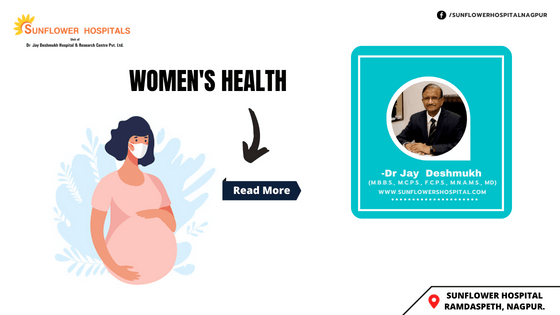What is the reality of disease risk in women?
The leading cause of death in men and women continues to be heart dices and cancer. Breast cancer is the second leading cause of cancer death in women. But women die more due to lung cancer than breast cancer. Men are more likely to die from suicides and accidents. Maternal mortality continues to be high in India. Unawareness, eclampsia, gestational hypertension, unhealthy livelihood, unhygienic surroundings, incorrect treatment, the spread of infections and haemorrhage are a few causes.
What about menopause?
Women spend a third of their life in menopause. There is a sudden fall in oestrogen levels leading to increased cardiovascular disease and bone density rapidly falls. This makes them susceptible to heart attacks and bone fractures.
What about cardiovascular disease and stroke?
Women get lesser attention than men when it comes to cardiovascular disease. They undergo a lesser degree of angioplasty or bypass surgery as compared to men. It is a wrong perception that women are at a lower risk of coronary artery disease. There is a striking increase in the incidence of cardiovascular disease after menopause or hysterectomy. This suggests that oestrogen hormones are heart-protective. Women have atypical symptoms of a heart attack. Women are more likely to die after a heart attack than men of the same age. Several disorders affect women exclusively such as pregnancy-associated hypertension, gestational diabetes, preeclampsia, polycystic ovarian disease, rheumatoid arthritis and systemic lupus erythematosus. Certain adverse pregnancies. Outcomes increase the risk of cardiovascular disease after menopause.
What about diabetes in women?
Women with diabetes have a sixfold increase in the rate of death due to heart attacks compared to women without diabetes. Women with diabetes receive less aggressive treatment than men for their diabetes. Polycystic ovarian syndrome, pre-eclampsia, and pro-women’s health are unique due to different sex chromosomes and hormones. Gradually it is becoming patient-centred health care. It is accepted that there is a difference in gene expression, disease processes and health outcomes. This is an example of precision medicine. Women’s health is a mature discipline now. More attention needs to be given to modifiable risk factors. Nancy-associated hypertension and gestational diabetes are common conditions in premenopausal and are associated with an increased risk of type 2 diabetes.
What about hypertension in women?
As women survive longer than men, the incidence of hypertension is high in elderly women. Hormone replacement therapy (HRT) is not associated with hypertension. The benefits of treatment of hypertension are dramatic in women and men. Appropriate treatment for hypertension has reduced the incidence of stroke and cardiovascular disease.
What about autoimmune diseases in women?
The incidence of lupus, rheumatoid arthritis, scleroderma, thyroid disorders and multiple sclerosis are more in women. This increases the incidence of early death as compared to men due to renal and cardiovascular diseases. These disorders make them more susceptible to osteoporosis and infections.
What about alcohol and tobacco abuse in women?
Women are less likely to be diagnosed as alcoholics than men. Blood alcohol levels are higher in women than men after drinking the same volume of alcohol. Women develop alcohol-related liver disease earlier than men. Moderate alcohol intake increases the incidence of breast cancer, hypertension, and stroke in women. Women who smoke develop chronic obstructive lung disease and lung cancer quite earlier than men smokers.
What about violence against women?
Rape, physical violence and stalking are major concerns. Intimate partner violence is a major cause of death in young women. Stay at home during the COVID-19 pandemic increased the incidence of violence against women. Mental illness in women and men and alcoholism and economic instability are major causes of violence against women. This needs an aggressive approach by the legal system. Women’s health issues need to be brought to the forefront. They have every right to lead a healthy life as their men counterparts. The subtle changes brought in due to sex chromosomes and oestrogen need to be appreciated.


